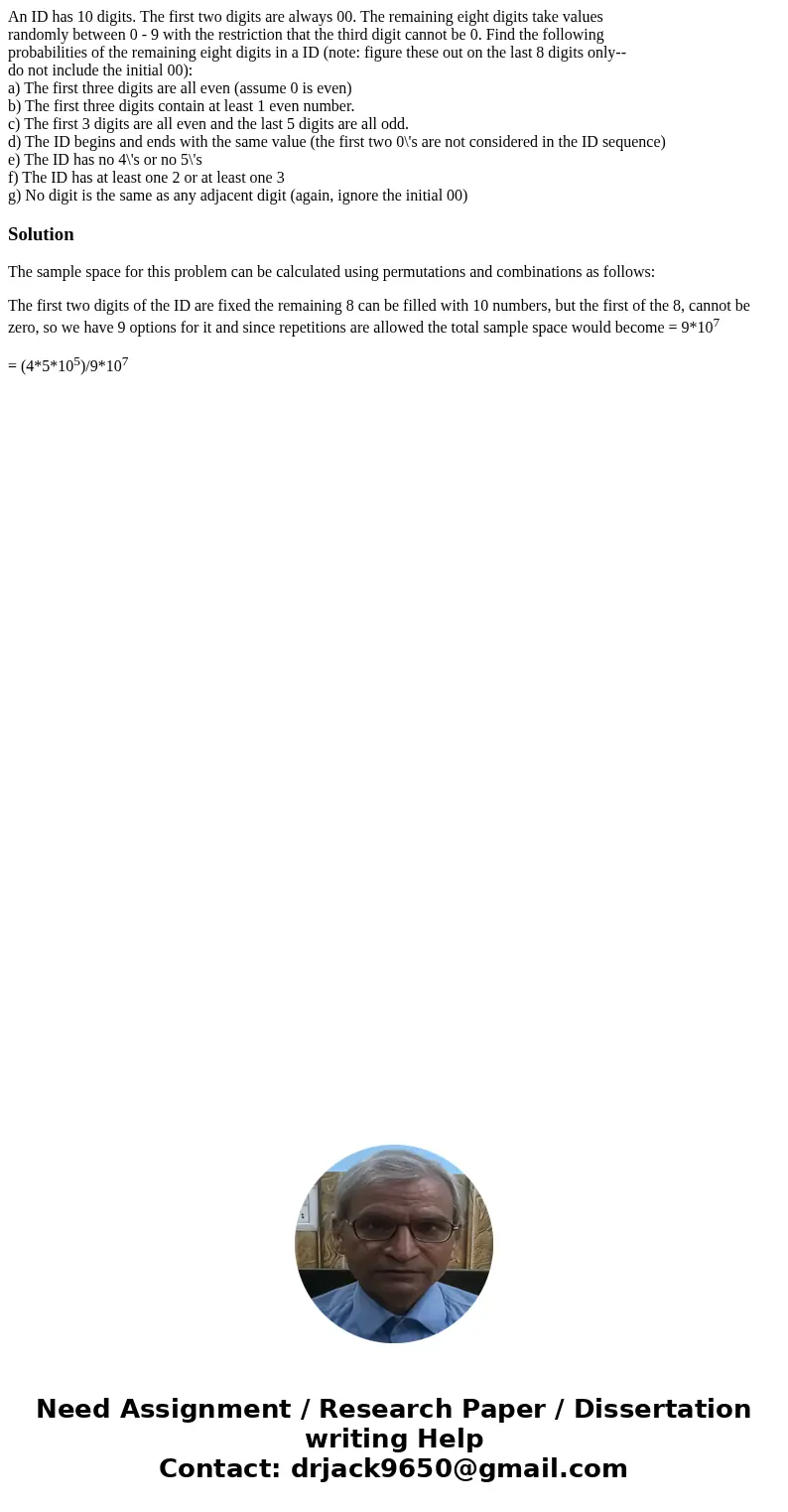An ID has 10 digits The first two digits are always 00 The r
An ID has 10 digits. The first two digits are always 00. The remaining eight digits take values
randomly between 0 - 9 with the restriction that the third digit cannot be 0. Find the following
probabilities of the remaining eight digits in a ID (note: figure these out on the last 8 digits only--
do not include the initial 00):
a) The first three digits are all even (assume 0 is even)
b) The first three digits contain at least 1 even number.
c) The first 3 digits are all even and the last 5 digits are all odd.
d) The ID begins and ends with the same value (the first two 0\'s are not considered in the ID sequence)
e) The ID has no 4\'s or no 5\'s
f) The ID has at least one 2 or at least one 3
g) No digit is the same as any adjacent digit (again, ignore the initial 00)
Solution
The sample space for this problem can be calculated using permutations and combinations as follows:
The first two digits of the ID are fixed the remaining 8 can be filled with 10 numbers, but the first of the 8, cannot be zero, so we have 9 options for it and since repetitions are allowed the total sample space would become = 9*107
= (4*5*105)/9*107

 Homework Sourse
Homework Sourse